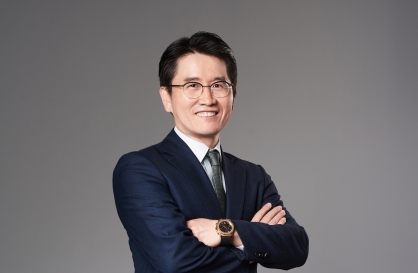U.S.-Japan defense pact likely to address Seoul's demand over collective self-defense
By KH디지털2Published : April 10, 2015 - 09:00
A U.S.-Japan defense pact in the final stage of negotiations is likely to address South Korea's demand that Tokyo should win Seoul's consent before exercising its collective self-defense right in contingencies around the Korean Peninsula, sources said Thursday.
The United States and Japan have negotiated to revise the 1997 Guidelines for U.S.-Japan Defense Cooperation to reflect changes in regional and global security situations. The negotiations are in the final stage with a view to conclude the pact around Japanese Prime Minister Shinzo Abe's visit to the U.S. later this month.
The pact has also been a focus of attention in South Korea because it is expected to reflect Japan's decision to exercise its collective self-defense right that empowers Japan to fight alongside its allies even if the country is not attacked.
South Korea has worried about the possibility of Japan sending forces to the Korean Peninsula in the name of aiding the U.S. ally under the collective self-defense right in the event of contingencies, such as conflicts with North Korea.
Japanese forces putting their boots on the peninsula is considered one of the last things that South Koreans want to see due to painful memories of Japan's colonial rule of Korea from 1910-45. Concerns about Japan seeking greater military power have worsened as Abe has taken a series of nationalist steps.
South Korea has demanded Japan should win explicit consent from Seoul if it wants to exercise the collective self-defense right in contingencies on the peninsula. It also urged Tokyo to dispel doubts and concerns stemming from history and work harder to win confidence from its neighboring countries.
Diplomatic sources in Washington said that South Korea is making multi-faceted efforts to make sure that the U.S.-Japan defense pact addresses its concerns about the collective self-defense. They said they expect the pact to address Seoul's concerns, but did not elaborate.
An interim report of the defense guidelines published last year said that the pact will detail cooperation between the two countries in case of an attack not only on Japan, but also "against a country that is in close relationship with Japan where Japan's use of force is permitted" under last year's revised constitutional interpretation.
The issue is also expected to be a topic when senior defense officials of the three countries hold annual three-way cooperation talks in Washington next week. The Defense Trilateral Talks (DTT) will involve assistant or deputy minister-level officials.
Critics have denounced Japan's decision on collective self-defense as a precursor to ultimately amending the country's pacifist constitution. Seoul and Beijing view the move warily as it calls to mind Japan's past militarism amid concerns that the power could be misused.
Despite such concerns, Japan's government adopted a new constitutional interpretation on July 1 to exercise the right in one of the biggest changes in the country's post-war security policy. (Yonhap)
The United States and Japan have negotiated to revise the 1997 Guidelines for U.S.-Japan Defense Cooperation to reflect changes in regional and global security situations. The negotiations are in the final stage with a view to conclude the pact around Japanese Prime Minister Shinzo Abe's visit to the U.S. later this month.
The pact has also been a focus of attention in South Korea because it is expected to reflect Japan's decision to exercise its collective self-defense right that empowers Japan to fight alongside its allies even if the country is not attacked.
South Korea has worried about the possibility of Japan sending forces to the Korean Peninsula in the name of aiding the U.S. ally under the collective self-defense right in the event of contingencies, such as conflicts with North Korea.
Japanese forces putting their boots on the peninsula is considered one of the last things that South Koreans want to see due to painful memories of Japan's colonial rule of Korea from 1910-45. Concerns about Japan seeking greater military power have worsened as Abe has taken a series of nationalist steps.
South Korea has demanded Japan should win explicit consent from Seoul if it wants to exercise the collective self-defense right in contingencies on the peninsula. It also urged Tokyo to dispel doubts and concerns stemming from history and work harder to win confidence from its neighboring countries.
Diplomatic sources in Washington said that South Korea is making multi-faceted efforts to make sure that the U.S.-Japan defense pact addresses its concerns about the collective self-defense. They said they expect the pact to address Seoul's concerns, but did not elaborate.
An interim report of the defense guidelines published last year said that the pact will detail cooperation between the two countries in case of an attack not only on Japan, but also "against a country that is in close relationship with Japan where Japan's use of force is permitted" under last year's revised constitutional interpretation.
The issue is also expected to be a topic when senior defense officials of the three countries hold annual three-way cooperation talks in Washington next week. The Defense Trilateral Talks (DTT) will involve assistant or deputy minister-level officials.
Critics have denounced Japan's decision on collective self-defense as a precursor to ultimately amending the country's pacifist constitution. Seoul and Beijing view the move warily as it calls to mind Japan's past militarism amid concerns that the power could be misused.
Despite such concerns, Japan's government adopted a new constitutional interpretation on July 1 to exercise the right in one of the biggest changes in the country's post-war security policy. (Yonhap)





![[Weekender] How DDP emerged as an icon of Seoul](http://res.heraldm.com/phpwas/restmb_idxmake.php?idx=644&simg=/content/image/2024/04/25/20240425050915_0.jpg&u=)


![[Music in drama] An ode to childhood trauma](http://res.heraldm.com/phpwas/restmb_idxmake.php?idx=644&simg=/content/image/2024/04/25/20240425050929_0.jpg&u=)








![[Herald Interview] Mistakes turn into blessings in street performance, director says](http://res.heraldm.com/phpwas/restmb_idxmake.php?idx=652&simg=/content/image/2024/04/28/20240428050150_0.jpg&u=20240428174656)
